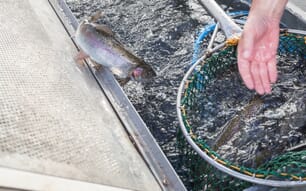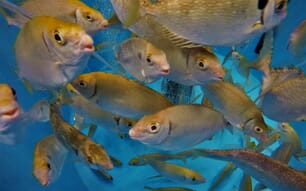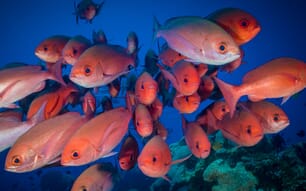Trout producers, conservationists, industry suppliers, scientists and other experts who attend the Dialogue meeting, which will be held in conjunction with the meeting of the Federation of European Aquaculture Producers, will begin to develop the criteria and indicators that will be the framework for the final standards.
When adopted by producers, the standards will minimize the key environmental and social impacts of trout aquaculture such as water pollution and the transfer of diseases to other fish which were identified at the Dialogue kick-off meeting in November.
The Dialogue process is an opportunity to promote sustainability and quality and get more producers involved in long-term sustainable production so that the industry may continue to be profitable, said trout Dialogue Steering Committee member Niels Alsted of BioMar.
Christoph Mathiesen of World Wildlife Fund (WWF), who coordinates the Dialogue, said these will be the most credible standards in the marketplace because they will be created through an open, transparent and consensus-oriented process. The Dialogue operates in accordance with the worlds most reputable guidelines for developing environmental and social standards, which were created by the International Social and Environmental Accreditation and Labeling Alliance.
We recognize the value of getting input from as many people as possible if we want the standards to be effective and attainable, Mathiesen said. If they participate, I can promise them their voices will be heard.
Mathiesen said that all comments made during the process will be used by the Dialogues Steering Committee to create the draft standards that will be posted for a six-month public comment period before being finalized next year.
The standards also will be the most credible standards for farmers to adopt because they will be measurable, which is the best way to determine if environmental and social issues related to trout farming are being addressed.
To ensure the standards are based on the best science available, one of the other goals of the May meeting will be to identify research that needs to be done to fill information gaps related to freshwater trout aquaculture.
Aquaculture Dialogue to Set Trout Standards
GENERAL - The process of creating global standards for responsible trout aquaculture will move forward when the Freshwater Trout Aquaculture Dialogue meets next month in the Faroe Islands, one of the top regions in the world for producing farmed trout.




